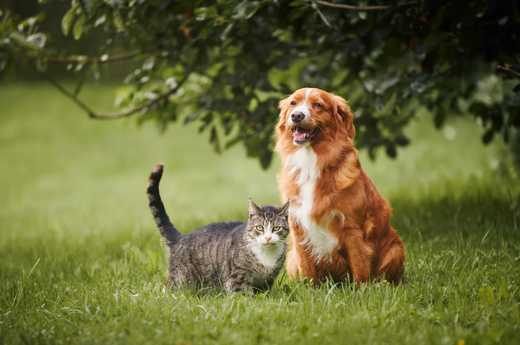Getting a Pet During Times of Transition
Bringing a new pet into your life is an exciting and rewarding experience, but it can also be challenging, especially during significant life changes. Whether you're moving to a new home, starting a new job, or experiencing other major transitions, understanding how to integrate a new furry friend into your life can help ensure a smooth adjustment for both you and your pet. This guide will provide practical tips and insights to help you navigate these changes successfully.
Understanding the Impact of Life Changes on Pets
Pets are sensitive to changes in their environment and routine. Major life changes can affect their behaviour, mood, and overall wellbeing. Recognising the impact these changes can have on your pet is crucial for ensuring their health and happiness during transitions.
The Stress of Moving
Moving to a new home can be stressful for pets. The unfamiliar environment, new smells, and different routines can cause anxiety and confusion. It’s important to create a safe and comfortable space for your pet in your new home to help them adjust.
Starting a New Job
A new job often means changes in your schedule, which can impact your pet’s daily routine. Pets thrive on consistency, so maintaining regular feeding, walking, and playtimes is essential to keep them settled.
Other Major Transitions
Other significant changes, such as adding a new family member, can also affect your pet. Preparing your pet for these changes and gradually introducing them to new experiences can help minimise stress.
Preparing for a New Pet During Transition
When planning to get a new pet during a major life change, preparation is key. Here are some steps to ensure a smooth transition:
Research and Choose the Right Pet
Consider your current lifestyle and the changes you are experiencing. Choose a pet that fits well with your schedule, living situation, and energy level. Research different breeds and their needs to find the best match for your circumstances.
Set Up a Comfortable Space
Before bringing your new pet home, set up a designated space where they can feel safe and secure. This area should include their bed, food and water bowls, and toys. Having a quiet, familiar spot can help your pet feel more at ease in a new environment.
Plan for Gradual Introductions
Introduce your new pet to their new environment and any existing pets or family members gradually. Allow them to explore at their own pace and provide plenty of positive reinforcement to create a positive association with their new surroundings.
Managing the Transition Period
The first few weeks with a new pet are crucial for establishing routines and building a bond. Here are some tips to manage this transition period effectively:
Maintain Consistent Routines
Consistency is vital for helping your pet adjust to new changes. Try to keep feeding, walking, and playtimes consistent to provide a sense of stability and predictability.
Provide Plenty of Attention and Interaction
Spending quality time with your new pet can help them feel more secure and loved. Engage in activities that they enjoy, such as playing, training, and cuddling, to strengthen your bond.
Monitor Your Pet’s Behaviour
Keep an eye on your pet’s behaviour for signs of stress or anxiety. Common indicators include excessive barking, chewing, hiding, or changes in eating habits. If you notice any concerning behaviours, consult with your veterinarian for advice and support.
Socialise Your Pet
Socialisation is important for your pet’s development and wellbeing. Gradually introduce them to new people, animals, and environments to help them become well-adjusted and confident.
Coping with Challenges
Adjusting to a new pet during a major life change can come with challenges. Here’s how to cope with some common issues:
Separation Anxiety
If your new job requires you to be away from home more often, your pet may experience separation anxiety. To help ease their anxiety, provide interactive toys, leave a piece of your clothing with them, and gradually increase the time you spend away from home.
Training and Behavior Issues
New environments and routines can lead to behaviour issues. Consistent training and positive reinforcement are key to addressing these problems. If necessary, seek the help of a professional trainer or behaviourist.
Health Concerns
Major life changes can impact your pet’s health. Ensure they have regular vet check-ups and maintain a balanced diet and exercise routine to keep them healthy.
Long-Term Considerations
Integrating a new pet into your life during times of transition requires long-term planning and commitment. Here are some considerations to keep in mind:
Financial Planning
Owning a pet involves ongoing costs such as food, vet care, and supplies. Ensure you have a budget in place to cover these expenses and any unexpected medical costs.
Time Management
Balancing a new pet with other responsibilities can be challenging. Plan your schedule to ensure you have enough time for your pet’s needs, including exercise, training, and companionship.
Continued Socialisation and Training
Ongoing socialisation and training are essential for your pet’s wellbeing. Continue to expose them to new experiences and reinforce positive behaviours to ensure they remain well-adjusted and happy.
Embracing the Journey
At Healthy Pet Co., we are here to support you with high-quality, vet-approved products and expert advice to help you and your pet thrive through all life’s changes.
For more tips and resources, visit our blog and explore our range of products designed to keep your pets healthy and happy. Together, we can make every life transition a positive experience for your furry friends.




